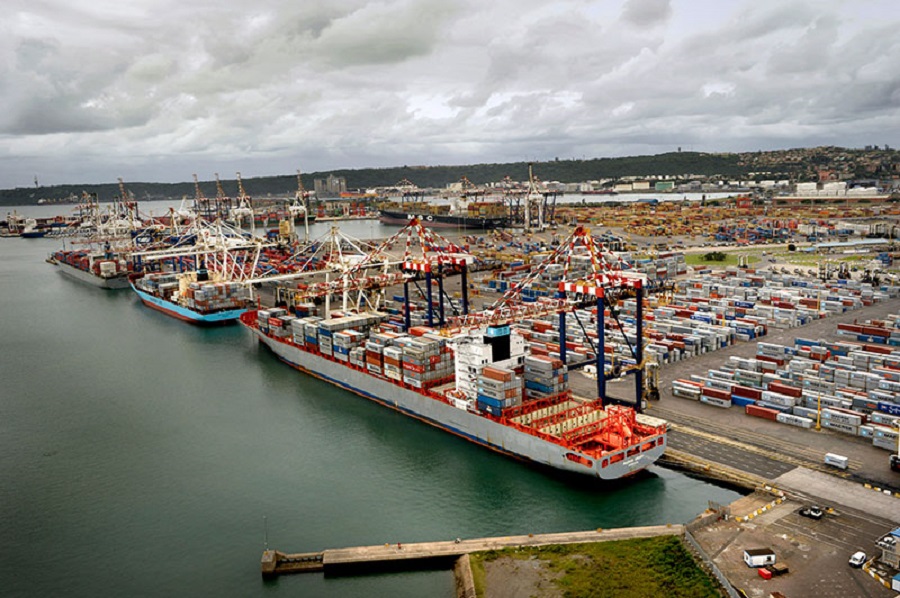News
R2 Million Fines and Jail Time: South Africa Cracks Down on Offshore Fuel Transfers

South Africa has drawn a bold line in the sand or, rather, in the ocean. The government has introduced strict new regulations to control offshore ship-to-ship (STS) fuel transfers, with hefty penalties that could see operators facing fines of up to R2 million or prison terms of up to five years.
Protecting South Africa’s Fragile Marine Life
Environment Minister Dion George confirmed the regulations, published under the National Environmental Management: Integrated Coastal Management Act, are aimed at curbing the environmental risks linked to offshore fuel transfers. These operations, which involve transferring fuel between vessels at sea, have been hotly debated in recent years, particularly in Algoa Bay, where the survival of endangered African Penguins has become a flashpoint.
The new rules ban STS activities within marine protected areas, aquaculture zones, and three nautical miles of the shoreline. In Algoa Bay specifically, operations will now face seasonal restrictions and be confined to designated anchorage zones to shield sensitive marine habitats.
“We cannot allow reckless practices to put our marine biodiversity at risk,” George said, highlighting that the African Penguin population, already declining at an alarming rate is one of the key species these regulations seek to protect.
A Tougher, Smarter Framework
The regulations don’t just set no-go zones; they also demand a new level of accountability from operators. Vessels will be required to:
-
Install hydrophone systems to detect marine mammals.
-
Monitor and report sightings of African Penguins and other wildlife.
-
Train all crew members in environmental awareness.
-
Submit Environmental Management Plans tailored to specific sites, subject to ministerial approval.
-
Have immediate response plans ready for any oil spills or wildlife injuries.
Conditions around weather safety have also been spelled out. For example, in Algoa Bay, transfers may only take place when wind speeds are below 22 knots and wave heights stay under two metres.
Public Reactions: A Divided Debate
While conservationists have applauded the move, shipping and bunkering operators are less enthusiastic. Environmental groups on platforms like X (formerly Twitter) have welcomed the crackdown, with some calling it “a victory for penguins and whales.” Others, however, worry that the regulations could make South Africa less competitive as a bunkering hub compared to Mauritius or Namibia.
For local residents in coastal towns such as Gqeberha, the announcement brings relief. Oil slicks and spills have previously stained beaches and harmed wildlife, sparking protests and petitions from community groups demanding stronger action. These regulations are seen as a long-overdue response to those concerns.
Why This Matters
The controversy around STS transfers in South Africa has been simmering for nearly a decade. Algoa Bay, often called the “Serengeti of the Sea” for its extraordinary biodiversity, has borne the brunt of unregulated activity. With African Penguins now classified as endangered, any further decline could push the species toward extinction within decades.
By introducing enforceable penalties, South Africa is signalling that environmental protection will no longer take a back seat to commercial convenience.
A New Era for South Africa’s Oceans
The regulations are not just about protecting penguins or whales, they’re about safeguarding an entire coastal ecosystem and the livelihoods tied to it, from tourism to fishing. At the same time, they set a precedent: that economic growth cannot come at the expense of the environment.
As Minister George put it: “These regulations are a decisive step to safeguard our oceans and secure the future of our African Penguin.”
The message is clear: ship-to-ship transfers can continue, but only if they respect the rules of the sea.
{Source: IOL}
Follow Joburg ETC on Facebook, Twitter , TikTok and Instagram
For more News in Johannesburg, visit joburgetc.com















